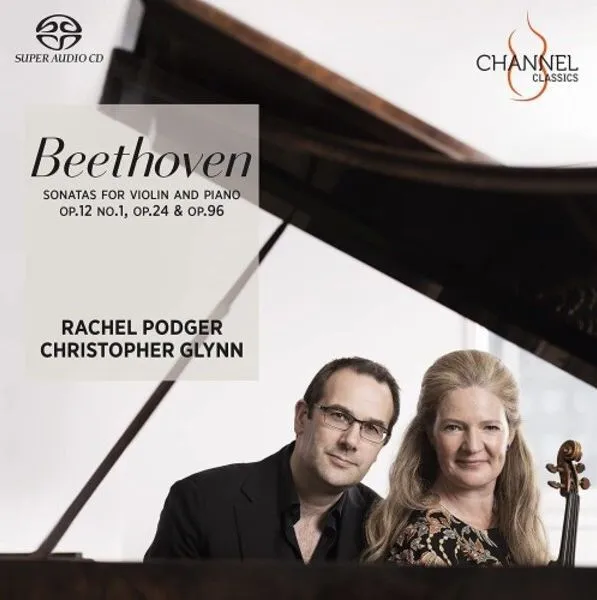
Beethoven Violin Sonatas Op. 12 No. 1; Op. 24; Op. 96 Rachel Podger (violin), Christopher Glynn (piano) Channel Classics CCSSA44222 (CD/SACD) 67:17 mins
It is remarkable just how much one assumes about these sonatas from such post-Romantic legends as Yehudi Menuhin (DG), David Oistrakh (Philips) and Itzhak Perlman (Decca). Listening to Rachel Podger (on the ‘Mauri’ Strad) and Christopher Glynn (on an 1840 Erard) is like experiencing the music in the clear light of day for the first time. Gone are those texturally swamping instrumental resonances, while vibrato is employed exquisitely as a subtle colouration rather than as an expressive default, and dynamics are explored inquisitively (especially at the lower end), without ‘intake-of-breath’ rhetorical signalling. Freed from cloying legato devices at every turn, the music feels as though it has room to expand naturally.
There is also a powerful sense of Beethoven’s coruscating invention emerging spontaneously from within, rather than having a generic preconception forced onto it. This is most notable in the elusive final sonata, which sounds here almost as if written by a different composer, so incredibly fine-tuned and poetically responsive are Podger’s and Glynn’s flights of fantasy. The earlier sonatas also emerge hot off the press, as if these distinguished players were discovering the music’s unique qualities for the first time. A special word here also for Glynn’s seemingly nonchalant despatch of Beethoven’s often awkwardly displaced piano writing, despite the generally swift tempos.
Some may find the sensation of Beethoven free-floating rather than galumphing around in hobnail boots almost too much of a semantic redirection. Yet one thing’s for certain – these groundbreaking sonatas will never quite seem the same again.
Julian Haylock
More reviews
Adam Fischer conducts Mahler’s Symphony No. 4 with the Dusseldorf Symphony Orchestra
Sir Mark Elder conducts Vaughan Williams’s Symphonies Nos 4 & 6 with the Hallé orchestra
Strauss’s Alpine Symphony and Mahler’s Symphony No. 10 conducted by James Judd
Liszt’s Symphonic Poems conducted by Kubelík and Karajan
Bruckner’s Symphony No. 5, Te Deum conducted by Eugen Jochum
